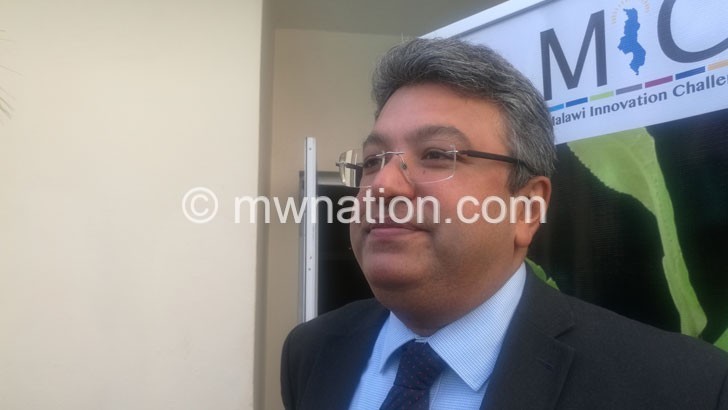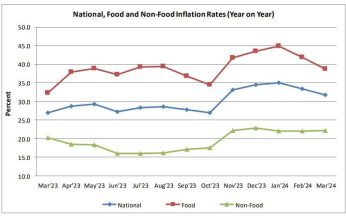Firms challenged on jobs, growth
The United Nations Development Programme (UNDP) has challenged the private sector to spearhead job creation and economic growth by creating innovations that provide commercial and development impact.
UNDP resident representative Shigeki Komatsubura said this on Tuesday in Blantyre on the sidelines of the launch of the 2019 agribusiness window of the Malawi Innovation Challenge Fund (Micf).

must be inclusive
The fund, valued at between $5 million (about K3.8 billion) and $6 million (about K4.5 billion), is being funded by UNDP and the Royal Norweigian Embassy with a total grant fund pledged at between $200 000 (about K152 million) and $600 000 (about K456 million).
Komatsubura said the private sector has a huge role to play in meeting the overarching challenge of poverty reduction and human development; hence, their commitment to working with the private sector.
“Everybody has to play their own roles. Government has their role, so has the private sector.
“We are challenging the agribusiness sector to propose new products, services and business models that can either deliver value addition, exports or import substitutes that incorporate poor producers in the supply chain,” he said.
On his part, Maziko Athu Investments Limited managing director Staneck Kulemero said access to finance has remained a major constraint, thereby limiting capacity and growth of firms.
Micf director Buddika Samarasinghe said they expect a number of projects it will support to be a success and impacting on poor Malawians.
“All business projects must be inclusive in nature. They will need to demonstrate their ability to deliver significant benefits to poor households in terms of improved incomes or job creation by providing affordable products and services, rather than benefitting participating companies of a particular project.
“The project should also demonstrate how women and youths will be incorporated either as producers, traders or consumers,” he said.
In its sixth year of operation, Micf has been able to finance over 26 unique business models that have impacted over 250 000 poor and near poor Malawians through improvements in income, generating over 2 000 full time jobs.
The types of projects currently implemented in the sector have ranged from livestock and horticulture, information and communication technology and agricultural value chains.





